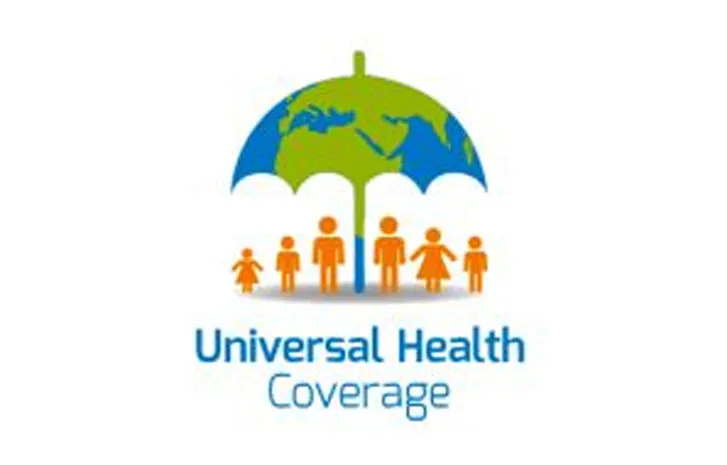This year’s commemoration of the Universal Health Coverage (UHC) Day on December 12, with the theme, “Health: It’s on the Government,” underscored the heavy reliance on out-of-pocket payments to fund health services in Africa, which continues to be a significant barrier to achieving UHC.
A report by the World Health Organisation (WHO) regional office for Africa noted that over 200 million people in Africa face financial strain due to out-of-pocket health payments, with more than 150 million individuals being pushed into or deeper into poverty as a result.
Highlighting the key findings, the report shows that in 2019, out-of-pocket payments accounted for over 25 percent of health spending in 31 African countries, exceeding 50 percent in 11 countries and 70 percent in three others.
While the global number of people impoverished due to health costs dropped by over 75 percent between 2000 and 2019, Africa saw only a 50 percent decrease.
This newspaper recalls that during last year’s commemoration of UHC, the Coordinating Minister of Health and Social Welfare, Muhammad Ali Pate, stated that the federal government had articulated the Nigeria Health Sector Renewal Investment Initiative (NHSRII) to advance the nation’s journey towards UHC.
He said the initiative would improve the basic health of all Nigerians, particularly women and children, whom he described as the most vulnerable parts of the country’s population.
The minister revealed that the initiative would move Nigeria closer to achieving UHC by gradually expanding health insurance coverage, ensuring healthy and viable risk pools through more effective governance, and establishing an enabling environment for better public and private sector collaboration.
Taking stock while marking one year since the presidential unveiling of the NHSRII and the signing of the Sector-Wide Approach (SWAp) compact between the federal government, 36 state governments, the Federal Capital Territory (FCT), and development partners during this year’s UHC commemoration on December 12, Pate admitted that the prices of food, drugs, transportation, and subsistence have increased.
The latest National Health Account expenditure data by the Federal Ministry of Health and Social Welfare and the National Bureau of Statistics (NBS) estimate the total health expenditure per Nigerian at under $100.
We recognise that one of the vehicles through which UHC can be achieved seamlessly is the National Health Insurance Authority (NHIA), formerly the National Health Insurance Scheme (NHIS), which was launched in 2005 but has unfortunately not been able to deliver much on its mandate, with just about 19.2 million people insured to date.
Without a doubt, enrolling in an insurance scheme ensures that Nigerians can get medical care without paying for it at the point and time of need.
This newspaper finds it lamentable that even in the 21st Century, health insurance is still aspiring to cover critical needs such as family planning, HIV and tuberculosis treatments, cancer care, diabetes, hypertension, and nutrition.
Compounding the issue is the state of Primary Healthcare Centres (PHCs) in the country, many of which have challenges that make it difficult to guarantee quality services.
According to the National Primary Health Care Development Agency (NPHCDA), there are 30,000 PHCs in the country, with about 8,000 PHCs funded directly by the federal government through state governments. Others are not able to meet the criteria for fully functional services.
We recall that the Basic Health Provision Fund (BHCPF) was established in 2014 by the National Health Act to provide a Basic Minimum Package of Health Services (BMPHS) to all Nigerians, including the poor and vulnerable, through the one percent Consolidated Revenue Fund (CRF).
However, its implementation has been plagued by delayed fund transfers, poor data management, corruption, and the lack of preparedness of local government health authorities to manage the fund.
In a bid to make UHC a reality by 2030, the WHO has called for intensified efforts to improve financial protection in health. By investing in health systems and abolishing patient fees, governments can ensure that no one has to choose between their health and their livelihood.
In our considered opinion, having to pay for medicines and other healthcare costs out of pocket can instantly alter the trajectory of someone’s life toward financial hardship and ill health. It may force many to spend less on other basic needs such as food and housing, thereby worsening their conditions.
Despite these challenges, the report revealed that countries with greater government investment in health services reported lower rates of financial hardship from out-of-pocket payments.
It called for urgent action to protect populations from financial hardship, including exempting poor people from healthcare fees, expanding government-funded health services, and introducing health insurance.
Nonetheless, despite the country’s poor scorecard, Pate said there is good news to report: more Nigerians (47 percent) endorsed the trajectory of the health system, and 54 percent are confident in the government’s capacity to effectively manage health emergencies – an increase of 17 percent compared to 2023.
These gains, while notable, must not obscure the need for more decisive action.
Universal Health Coverage by 2030 remains an ambitious but attainable goal. To achieve it, Nigeria must prioritise investments in its health systems, strengthen accountability mechanisms, and ensure that programmes such as the NHIA and BHCPF fulfil their mandates. The costs of inaction – measured in lives lost, families impoverished, and opportunities squandered – are simply too great.
The road to UHC may be long, but the time to accelerate is now.
